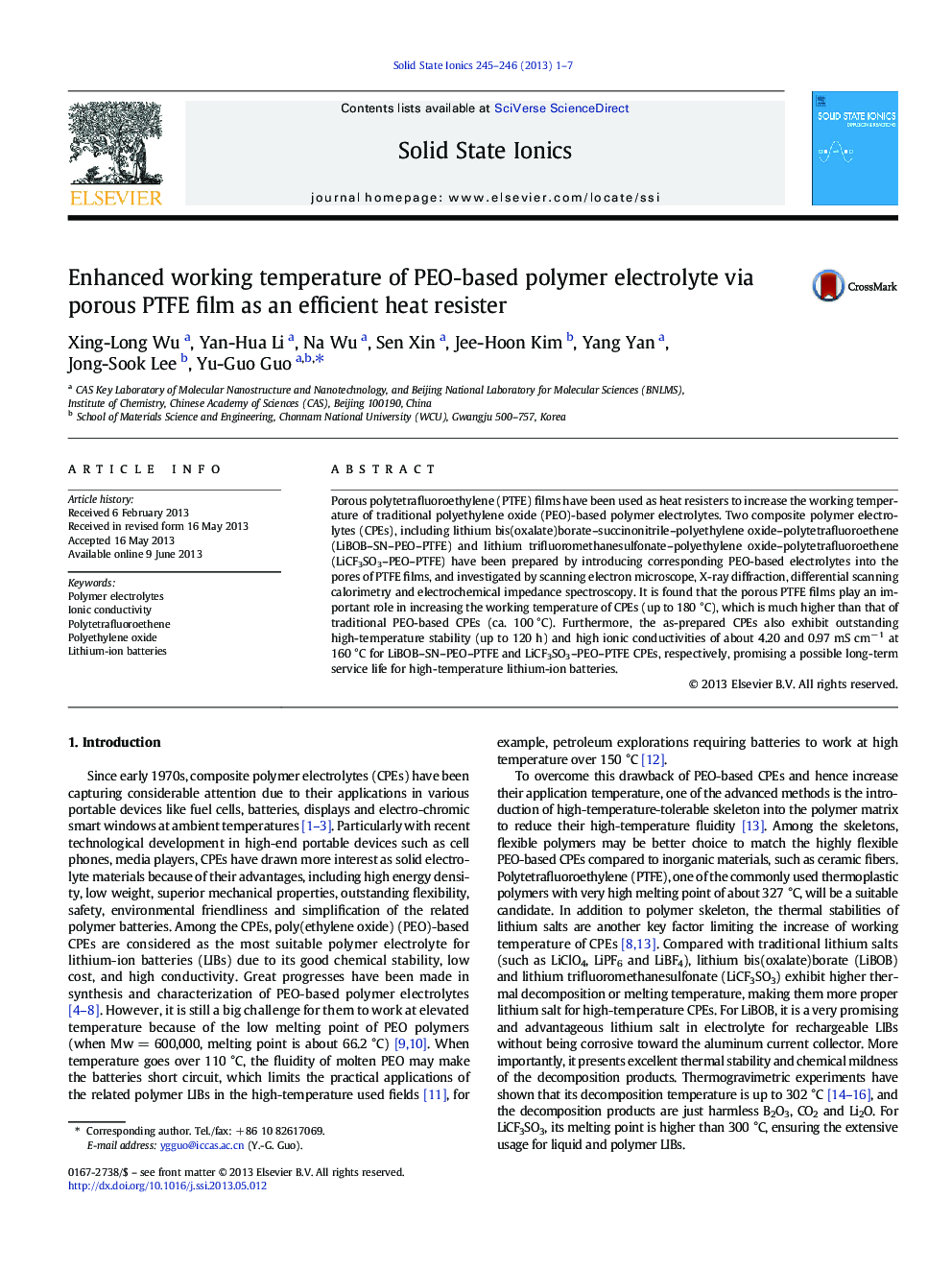| Article ID | Journal | Published Year | Pages | File Type |
|---|---|---|---|---|
| 7746786 | Solid State Ionics | 2013 | 7 Pages |
Abstract
Porous polytetrafluoroethylene (PTFE) films have been used as heat resisters to increase the working temperature of traditional polyethylene oxide (PEO)-based polymer electrolytes. Two composite polymer electrolytes (CPEs), including lithium bis(oxalate)borate-succinonitrile-polyethylene oxide-polytetrafluoroethene (LiBOB-SN-PEO-PTFE) and lithium trifluoromethanesulfonate-polyethylene oxide-polytetrafluoroethene (LiCF3SO3-PEO-PTFE) have been prepared by introducing corresponding PEO-based electrolytes into the pores of PTFE films, and investigated by scanning electron microscope, X-ray diffraction, differential scanning calorimetry and electrochemical impedance spectroscopy. It is found that the porous PTFE films play an important role in increasing the working temperature of CPEs (up to 180 °C), which is much higher than that of traditional PEO-based CPEs (ca. 100 °C). Furthermore, the as-prepared CPEs also exhibit outstanding high-temperature stability (up to 120 h) and high ionic conductivities of about 4.20 and 0.97 mS cmâ 1 at 160 °C for LiBOB-SN-PEO-PTFE and LiCF3SO3-PEO-PTFE CPEs, respectively, promising a possible long-term service life for high-temperature lithium-ion batteries.
Related Topics
Physical Sciences and Engineering
Chemistry
Electrochemistry
Authors
Xing-Long Wu, Yan-Hua Li, Na Wu, Sen Xin, Jee-Hoon Kim, Yang Yan, Jong-Sook Lee, Yu-Guo Guo,
